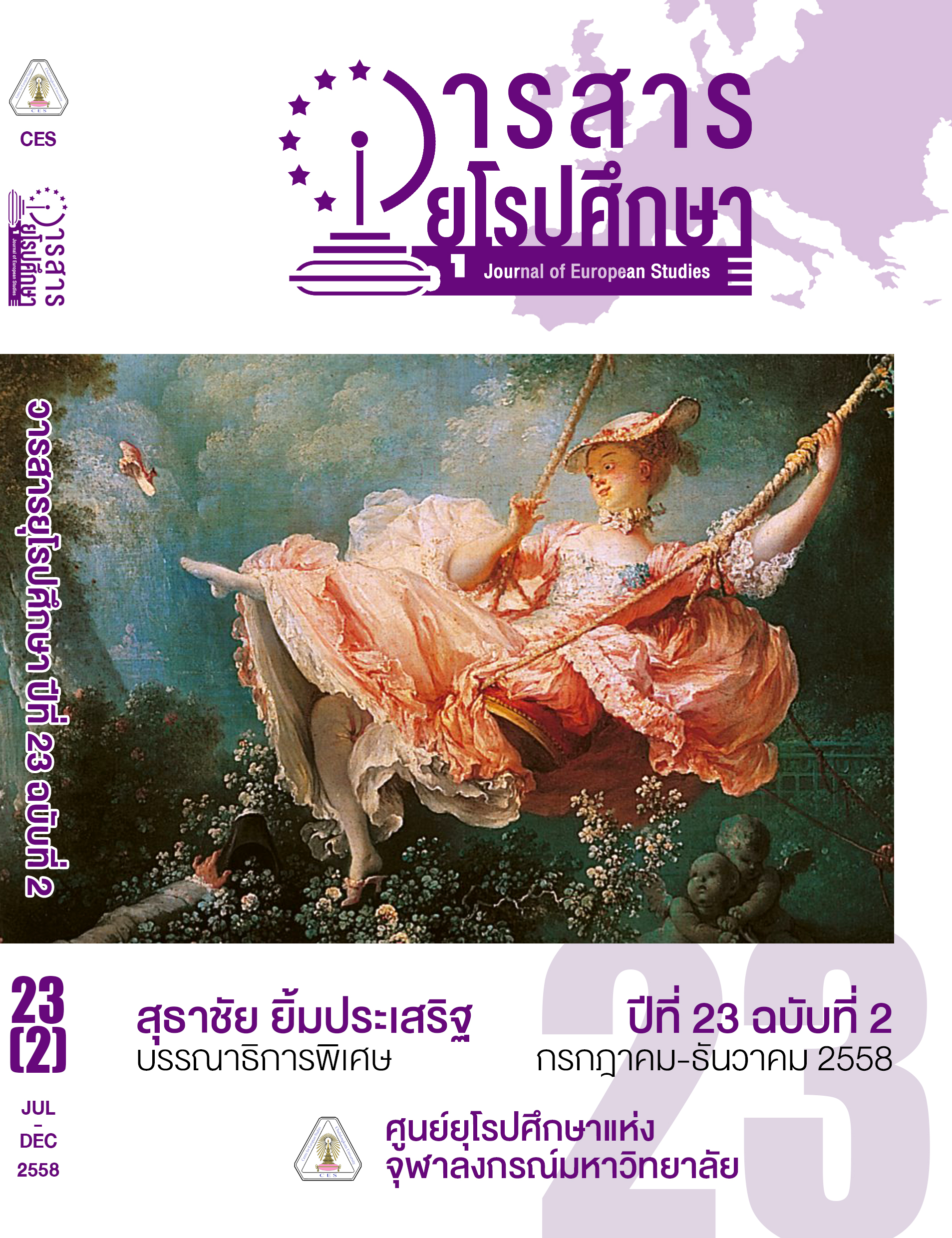เปิดโลกวรรณกรรมเช็ก: โบฮุมิล ฮราบัล ความทรงอำนาจแห่ง ตัวละครไร้อำนาจ ความเป็นการเมืองในความไม่เป็นการเมือง และสาระแห่งความไร้สาระในกลวิธีการ “พล่าม/แถ”
บทคัดย่อ
This paper is an overview of the life of and the selected woks by Bohumil Hrabal (1914-1997), a Czech writer hailed as one of the best writers in the twentieth century. Its focus in on the ways in which Hrabal negotiates with the censorship imposed upon him and the people of his country through the form, style, content, and techniques of his writing. I propose that Hrabal’s literary works intentionally feature and put on centre stage small and powerless characters who are paradoxically rendered powerful for their painful honesty and for the subtle ways in which they propel readers to question society and, most importantly, reflect upon themselves against the backdrop of fear and tyranny, as well as the atmosphere of paranoia. I also argue that by evading politics in his writings to compromise with the constraints of self-censorship and official censorship brought about by the totalitarian state where he chose to remain until his death, Hrabal was paradoxically political and vocal in his critique on the injustices which the people of his time were forced to encounter and with which they were forced to come to terms in a pragmatic and realistic manner. Life goes on, Hrabal’s work repeatedly insists, even in a hopeless totalitarian state – for it is life itself and human’s noble flaws of complacency and selfish pursuits of happiness which bring about and strengthen political oppression and dictatorship. However, not all has been lost. It is also those very noble flaws which can topple the establishment. Mistakes can be redeemed in loud solitude by art, knowledge, compassion and honest reflection. Hrabal’s “palavering” technique, in which the passage of time is spent in half-drunk conversations with people in pubs and factories or spent in monologues of solitude described in his writing, brings together what one understands to be typical binary oppositions such as dreams/reality, art/trash, the beautiful/the grotesque, the sacred/the profane, dissidence/political indifference—blending the ordinary and the extraordinary in ways which not only dismantle those very oppositions, but also challenge the limitations imposed by a political regime—laying bare the human spirit which remains resilient and proudly defiant against all odds.



